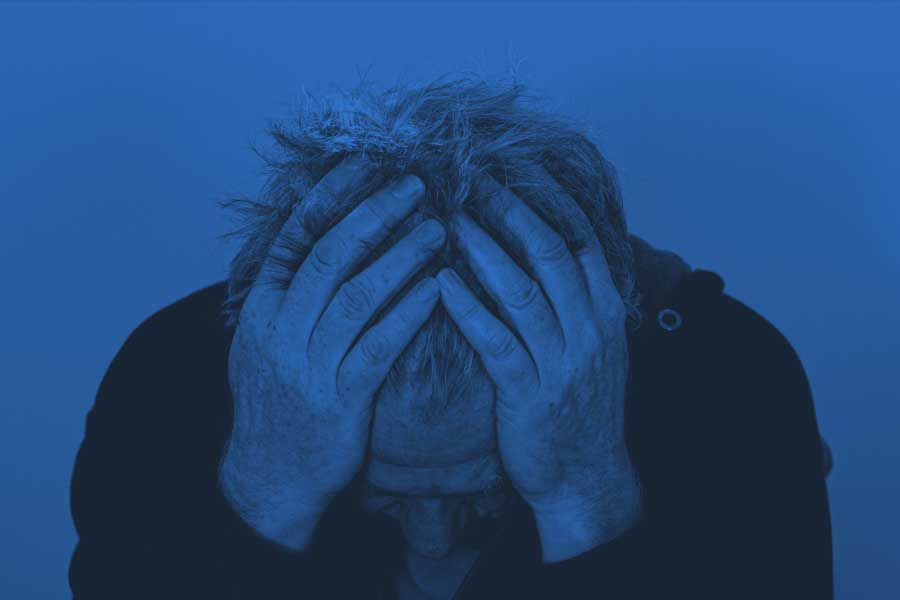Alcohol withdrawal is severe. Why? Addiction to alcohol is one of the worst forms of addiction that a person can have. The reason is simple, to put it straightforwardly, alcohol is a legal drug. It’s easily available and a socially acceptable way of intoxication. What starts as a few beers, over time takes the form of addiction. Adding fuel to the fire is the fact that alcohol is cheap and readily available in the market with the government’s approval. In the modern world, there would be millions of people who want to get rid of this menace but cannot without proper rehabilitation.
Even with proper rehab, getting rid of this habit is tough. There are withdrawal symptoms associated with alcoholism that are not easy to handle. That’s why the choice of rehab center makes a difference but discussing that here is out of the context of the current article.
What is Alcohol Withdrawal?
A person is said to be addicted to alcohol when his body experiences a peculiar set of symptoms when the alcohol is not in his system. What happens is that over time regular heavy alcohol consumption alters the way the human brain functions. It messes up the network of neurotransmitters and other nerves of the body, making it necessary for the human body to consume more alcohol in order to remain functional. This is the basic cause of alcohol withdrawal.
What are the First Signs of Alcohol Withdrawal?
Gamma-aminobutyric acid (GABA) is a neurotransmitter that is responsible for the production of feelings like relaxation and joy. This neurotransmitter gets adversely affected by excessive alcohol consumption and gives rise to the first signs of alcohol withdrawal. The imbalance of this neurotransmitter gives rise to symptoms like:
- Confusion
- Palpitations
- Anxiety
- Restlessness
- Headaches
What are the Symptoms of Alcohol Withdrawal?
Alcohol addiction also imbalances dopamine, the neurotransmitter associated with the reward system of the body. It is also responsible for a feeling of joy, motor coordination, and cognition. What alcohol consumption does is that it releases dopamine and the person consuming alcohol feels elated and good. Over time the body develops the tolerance for alcohol and forgetting the same reward feeling a man starts consuming more and more quantity of alcohol. When the same person suddenly stops consuming alcohol, then the signs and symptoms of acute alcohol withdrawal occur and the following things happen:
- Vomiting
- Nausea
- Mood Swings
- Confusion
- Sweating
- Fever
If the addiction is really acute then the person might even experience what is termed as delirium tremens. Delirium tremens is a condition that is more often observed in persons who have been drinking heavily for a really long period of time. Altered mental functions, deep sleep, Fear, Seizures, heavy mood swings are some of the symptoms associated with delirium tremens.
Symptoms of and the Alcohol Withdrawal Timeline
Alcohol withdrawal time can vary, the alcohol withdrawal timeline is divided into 3 phases and they are:
Phase 1: Within 6-12 Hours of leaving alcohol: Headaches, Anxiety, Stomach Pains & Nausea.
Phase 2: Within 12-48 Hours of leaving alcohol: Increased body temperature, Blood pressure, heart rate, and confusion.
Phase 3: Within 48-72 Hours of leaving alcohol: Seizures, Hallucinations, Delirium, and in extreme cases even death.
Alcohol Withdrawal Treatment
The extent of alcohol withdrawal treatment depends upon various factors. However, if you do not have any underlying medical conditions then all you need is a good supportive atmosphere and proper rehab counseling. However, if your addiction is really at an advanced stage or there is a reason that you should be under constant medical attention then a medical doctor may get involved and prescribe you the proper medical care that your condition demands. In general, if you have fluctuating blood pressure, hallucinations or seizures then you would require in patient care. Common medications that are used by doctors in these cases are benzodiazepines which would help you cope up with insomnia, anxiety, and seizures. Further medication may be required, but that depends solely on the doctor treating you and your condition.
The Signs and Symptoms of the Causes of Alcohol Withdrawal Vary
As an end note, the extent and severity of the signs and symptoms of alcohol withdrawal vary from person to person. It would depend upon many factors like the duration of alcohol abuse, the quantity of substance consumed regularly, the nutrition state of the affected person, etc. Alcohol rehab is a long process and it’s difficult, however, the fruits of the labor are really sweet here. Having the right help by your side always helps. Ensure that you or your loved ones are in the right care so that they can break this bad habit and lead a fulfilled life.


 Verify Insurance
Verify Insurance
 Toll Free Call
Toll Free Call